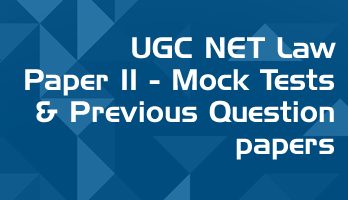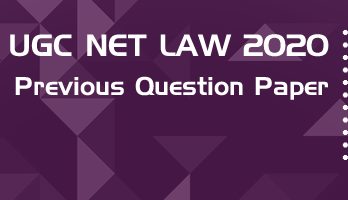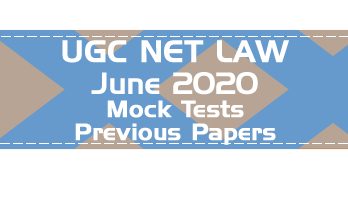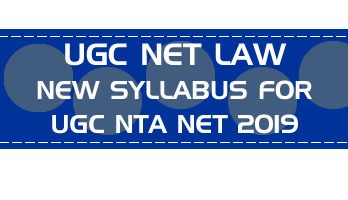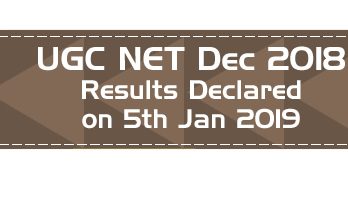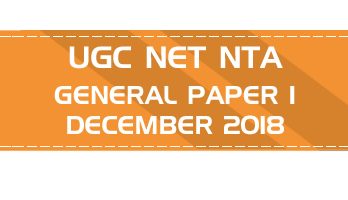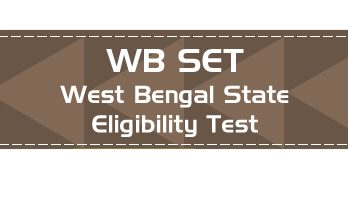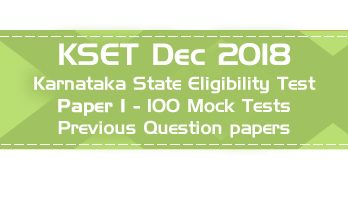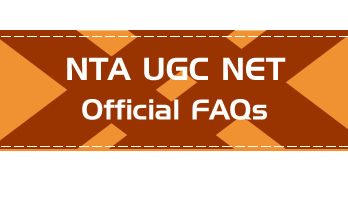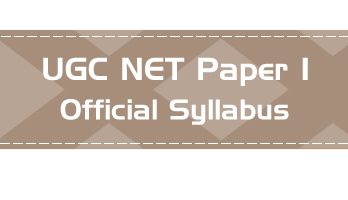Note : The UGC NET syllabus for Papers 1 and 2 has been revised from Jan 2019 onward. Check other articles on LawMint.com and also the official website for the latest and updated details. The exam is being conducted by the National Testing Agency – NTA instead of the CBSE since December 2018.
Is it CBSE NET or UGC NET or UGC NET CBSE ?
It is actually the UGC NET exam, however, it is also known as the CBSE NET since the CBSE conducts the National Eligibility Test (NET) on behalf of the UGC.
What is the exam conducted for ?
The UGC NET is for determining the eligibility of Indian nationals for the Eligibility for Assistant Professor only or Junior Research Fellowship & Eligibility for Assistant Professor Both in Indian universities and colleges.
The award of JRF and Eligibility for Assistant Professor both OR Eligibility for Assistant Professor only will depend on the performance of the candidate in both the papers of CBSE NET in aggregate. However, the candidates qualifying exclusively for Assistant Professor will not be considered for award of JRF.
Candidates appearing in UGC NET should clearly specify in the Application Form whether they are applying for both JRF& Eligibility for Assistant Professor both OR only for eligibility for Assistant Professor.
Candidates who qualify the Test for eligibility for Assistant Professor will be governed by the rules and regulations for recruitment of Assistant Professor of the concerned universities/colleges/state governments, as the case may be.
The candidates who qualify for the award of Junior Research Fellowship are eligible to pursue research in the subject of their post-graduation or in a related subject and are also eligible for Assistant Professor. The universities, institutions, IITs and other national organizations may select the JRF awardees for whole time research work in accordance with the procedure prescribed by them.
Candidates qualifying for the award of Junior Research fellowship will be eligible to receive fellowship of UGC under various schemes, subject to their finding placement in universities/IITs/institutions.
The validity period of the offer is three years w.e.f. the date of issue of JRF Award Letter. However, in case the candidates who have already joined M. Phil./ Ph.D., the date of commencement of fellowship shall be from the date of declaration of NET result or date of their joining, whichever is later.
How and when are the results announced ?
The result of the UGC NET will be made available on the website: https://ugcnet.nta.nic.in as and when it is declared. (Usually in a few weeks after the exam) The candidates will not be individually intimated about their result.
PROCEDURE & CRITERIA FOR DECLARATION OF RESULT
This will comprise of following steps:
Step I : The number of candidates to be qualified (total slots) for Eligibility for Assistant Professor shall be equal to 6% of the candidates appeared in both the papers of UGC NET.
Step II : The total slots shall be allocated to different categories as per the reservation policy of Government of India.
Step III : In order to be considered for Both Junior Research Fellowship (JRF) and Eligibility for Assistant Professor and for Eligibility for Assistant Professor Only , the candidate must have appeared in both the papers and secured at least 40% aggregate marks in both the papers taken together for General (Unreserved) category candidates and at least 35% aggregate marks in both the papers taken together for all candidates belonging to the reserved categories (viz., SC, ST, OBC (belonging to Non-Creamy Layer) & PWD) and Transgenders.
Step IV : The number of candidates to be declared qualified in any subject for a particular category is derived as per the following methodology illustrated below:
Example : Number of candidates to be declared qualified for Eligibility for Assistant Professor in the subject Economics (say) for the Scheduled Caste (SC) category
Number of candidates belonging to SC category who secure at least 35% aggregate marks in both the papers taken together for SC category for Economics (×) Total slots derived for SC category as per Step II (÷)Total number of candidates belonging to SC category over all subjects who secure at least 35% aggregate marks in both the papers taken together.
The aggregate percentage of the two papers corresponding to the number of slots arrived at, shall determine the qualifying cut-off for Eligibility for Assistant Professor in Economics for the SC category.
Similar yardstick shall be employed for deriving the subject-wise qualifying cut-offs for all categories.
Step V : All candidates who had applied for Eligibility for JRF & Eligibility for Assistant Professor Both out of the total number of qualified candidates derived as per Step IV, shall constitute the consideration zone for JRF.
Step VI : The total number slots available for awarding JRF is allocated among different categories as per the reservation policy of Government of India. The procedure for subjectwise cum category-wise allocation of JRF slots is illustrated below:
Example : Number of candidates to be declared qualified for JRF & Eligibility for Assistant Professor Both in the subject Economics (say) for Scheduled Tribe (ST) category
Number of candidates belonging to ST category who have opted for JRF and have qualified for Eligibility for Assistant Professor in Economics (say) (×) Total JRF slots available for ST category (÷)Total number of candidates belonging to ST category over all subjects who have opted for JRF and have qualified for Eligibility for Assistant Professor.
The aggregate percentage of the two papers corresponding to the number of JRF slots arrived at, shall determine the qualifying cut-off for JRF in Economics for the ST category.
Similar allocation procedure is used for all subjects and categories. It may be noted that the above qualifying criteria decided by UGC/CBSE is final and binding.
Are there any provisions for enabling Persons With Disabilities to allow them to take the exam ?
PROVISIONS FOR PERSONS WITH DISABILITY (INCLUDING VISUALLY CHALLENGED CANDIDATES) HAVING 40% OR MORE DISABILITY.
i) Twenty minutes compensatory time shall be provided for Paper I and forty minutes for Paper II separately.
ii) The persons with minimum 40% Disability (Physically Challenged) candidates who are not in a position to write in their own hand-writing can also avail these services of scribe by making prior request (at least one week before the date of UGC-NET) in writing to the concerned Centre Superintendent. Compensatory time and facility of scribe would not be provided to other Persons with Disability (Physically Challenged) candidates.
iii) The candidate has the discretion of opting for his/her own scribe or has to request the concerned Centre Superintendent for the same in writing at least one week in advance of the test. In such instances the candidate is allowed to meet the scribe a day before the examination so as to verify whether the scribe is suitable or not. Those candidates who opt for their own scribe have to produce the scribe before the concerned Centre Superintendent along with his/her certificates of educational qualifications at least one day before the test.
iv) There is no provision of Test Booklets in Braille for visually impaired candidates.
v) The candidates with disability should fill in the percentages and type of disability correctly in the online application form of UGC CBSE NET
The type of disabilities are mentioned as below:
a) blindness and low vision
b) deaf and hard of hearing
c) locomotor disability including cerebral palsy, leprosy cured, dwarfism, acid attack victims and muscular dystrophy
d) autism, intellectual disability, specific learning disability and mental illness;
e) Multiple disabilities from amongst persons under clauses (a) to (d) including deaf-blindness in the posts identified for each disabilities.
vi) An amount of Rs. 1000/- (Rs. One thousand only) will be paid to the scribe by the Centre Superintendent on the day of examination for all papers
What are the steps for applying for the UGC NET CBSE exam ?
APPLICATION HAVE TO BE SUBMITTED ONLINE
STEPS FOR SUBMISSION OF ONLINE APPLICATION FORM
i) Candidate seeking admission to the Test must apply online only on the CBSE website: cbsenet.nic.in within the dates mentioned in the official notification.
ii) Before applying Online, the candidates must possess the scanned images as below :
Passport size photograph in JPG format of minimum 4kb to 40 kb. The dimension of the photograph should be 3.5 cm (width) x 4.5 cm (height).
Signature in JPG format of minimum 4kb to 30 kb. The dimension of the signature should be 3.5 cm (width) x 1.5 cm (height).
iii) After filling all the details for applying online for NET the candidates have to select the option of payment of examination fee either by credit/debit card or through e-challan generated during the online filling of the application form indicating your details therein.
In case of e-challan the payment should be made in the Syndicate/Canara/ICICI Bank.
In case the examination fee is paid through credit/debit card the additional processing charges as following will also be debited from the credit/debit card of the candidate. Credit card: – 1.20% of the examination fee plus the service tax as applicable. Debit Card: – 0.75% of examination fee plus the service tax as applicable
The candidates are required to check the status of fee payment at CBSE website (cbsenet.nic.in) and if the status is ‘OK’ the candidate will be able to take the printout of Confirmation Page. In case, the fee payment status is not ‘OK’ the candidates are advised as following:-
If the fee is paid through e-challan be depositing cash in above mentioned bank, the candidate should contact immediately the concerned bank to update his/her fee status on the website.
If the fee is paid through credit/debit card and status is not OK, it means the transaction is cancelled and the amount will be refunded to concerned credit/debit card within a week. Such candidates have to pay the fee once again.
Please note that fee submitted by any other mode like money order, demand draft, IPO etc. will be rejected. Fee once paid will not be refunded under any circumstances
iv) The candidates are required to bring a photo identity card along with their printout of online admission card on the day of examination.
v) Before applying Online, candidates are advised to go through detailed notification available on CBSE website cbsenet.nic.in
vi) In other to avoid last minute rush, the candidates are advised to apply early enough. CBSE will not be responsible for network problems or any other problem of this nature in submission of online application during last days.
CHECK LIST FOR FILLING THE ONLINE APPLICATION FORM
The candidates are advised to ensure the following pints before filling the Online Application forms:
i) Whether they fulfil the eligibility conditions for the Test as prescribed under the heading ‘CONDITIONS OF ELIGIBILITY’ and ‘AGE LIMIT’
ii) That they have filled their CATEGORY, viz, GENERAL/OBC (non-creamy layer)/ SC/ST/ PwD/Transgender, in the relevant column correctly.
iii) That they have filled their subject and city of examination and code in the relevant column correctly.
iv) That the Person with Disability (PwD) candidates have filled the relevant column in The online application form. Only PwD candidates have to fill this column and the others have to leave it blank.
v) Whether they have kept a printout of application form (confirmation page) for their own record.
How are admission cards sent to the candidates who have applied for the CBSE UGC NET exam?
It may be noted that the admission cards will be uploaded on the website cbsenet.nic.in on the date mentioned in the official exam schedule.
No admission cards will be sent to the candidates by post.
The candidates should download their admission cards from the website to ascertain their venue of the Test as mentioned in the Admission Card and appear in the examination only at the designated examination center.
No candidate will be allowed to appear at the examination center other than that allotted to him/her in the admission card.
What is the eligibility criteria for taking the UGC NET CBSE exam ?
i) Candidates who have secured at least 55% marks (without rounding off) in Master’s Degree OR equivalent examination from universities/institutions recognized by UGC on the website: UGC recognized universities in Humanities (including languages) and Social Science, Computer Science &Applications, Electronic Science etc. (list of subjects of post graduation attached at page No. 20) are eligible for this Test.
The Other Backward Classes(OBC) belonging to non-creamy layer/Scheduled Caste(SC)/Scheduled Tribe(ST)/ persons with disability(PwD) category candidates who have secured at least 50% marks (without rounding off) in Master’s degree or equivalent examination are eligible for this Test.
ii) Candidates who are pursuing their Master’s degree or equivalent course or candidates who have appeared for their qualifying Master s degree (final year) examination and whose result is still awaited or candidates whose qualifying examinations have been delayed may also apply for this test.
However, such candidates will be admitted provisionally and shall be considered eligible for award of Junior Research Fellowship/eligibility for Assistant Professor only after they have passed their Master’s Degree OR equivalent examination with at least 55% marks (50% marks in case of OBC falling in Non Creamy layer/SC/ST/PwD (persons with disability)) category candidates.
Such candidates must complete their Masters degree or equivalent examination within two years from the date of NET result with required percentage of marks, failing which they shall be treated as disqualified.
iii) Candidates belonging to third gender in other words transgender would be eligible to draw the same relaxation in fee, age and qualifying criteria for NET (i.e. Junior Research Fellowship and Assistant Professor) as are available to SC/ST/PwD categories. The subject wise cut-offs for this category should be the lowest among those for SC/ST/PwD/OBC NCL categories in the corresponding subject.
iv) The Ph.D. degree holders whose Master s level examination had been completed by 19th September 1991(irrespective of date of declaration of result) shall be eligible for a relaxation of 5% in aggregate marks (i.e. from 55% to 50%) for appearing in NET.
v) Candidates are advised to appear in the subject of their post graduation only. The candidates, whose post graduation subject is not covered in the list of subjects (at the end of this article), may appear in a related subject
Are there any exemptions available from having to take the UGC NET ?
i) NET/SET/SLET shall remain the minimum eligibility condition for recruitment and appointment of Assistant Professors in Universities/Colleges/ Institutions. In this regard, exemption from NET/SET/SLET will be governed by UGC regulations and amendments notified in the Gazette of India from time to time.
ii) The candidates who have passed the UGC/CSIR JRF examination prior to 1989 are also exempted from appearing in NET.
iii) For SET Candidates: The candidates who have cleared the States Eligibility Test (SET) accredited by UGC for eligibility for Assistant Professor held prior to 1st June 2002, are exempted from appearing in NET, being eligible to apply for Assistant Professor anywhere in India.
For SET held from 1st June 2002 onwards, the qualified candidates are eligible to apply for the post of Assistant Professor only in the universities/ colleges situated in the state from where they have cleared their SET.
What are the Master’s degrees eligible for taking up the UGC NET exam ?
The list of eligible Post Graduation degrees and the list of recognized subjects is included at the end of this article.
The candidates have to select option Other in the dropdown list and fill the name of the University, if they have passed/appearing in their Post Graduation Examination from a University which is not mentioned in the list.
Candidates having post-graduate diploma/ certificate awarded by Indian University/ Institute or foreign degree/diploma/certificate awarded by the foreign University/institute should in their own interest, ascertain the equivalence of their diploma/degree/certificate with Master s degree of recognized Indian universities from Association of Indian Universities (AIU), New Delhi. (www.aiu.ac.in)
What is the age-limit and relaxation for the UGC NET exam?
i) Junior Research Fellowship: Not more than 30 years as on the specified date in the notification.
A relaxation up to 5 years is provided to the candidates belonging to OBC (Non- creamy layer, as per the Central list of OBC available on website: www.ncbc.nic.in ) SC/ST/PwD/Transgender categories and to women applicants.
Relaxation will also be provided to the candidates having research experience, limited to the period spent on research in the relevant/related subject of post-graduation degree, subject to a maximum of 5 years, on production of a certificate from appropriate authority.
Three years relaxation in age will be permissible to the candidates possessing L.L.M. Degree.
A relaxation of up to 5 years is provided to the candidates who have served in the armed forces subject to the length of service in the armed forces up to the first day of the month in which the concerned UGC-NET is to be held.
Total age relaxation on the above ground(s) shall not exceed five years under any circumstances.
ii) Assistant Professor: There is no upper age limit for applying for eligibility for Assistant Professor.
What are the subjects in the exam?
CBSE will conduct NET in 84 subjects, see the list of subjects at the end of this article.
Where is the exam conducted?
CBSE will conduct the exam at 91 selected Cities of Examination spread across the country. (See the list at the end of this article) The candidates have to select any four cities of their choice for examination.
The efforts will be made to allot city of examination to the candidates in order of the choice opted by them in their application form. However, in some exceptional circumstances, a different city of nearby area may be allotted.
What is the pattern and syllabus for the UGC NET CBSE Exam ?
Paper-I shall consist of 50 objective type compulsory questions each carrying 2 marks. The questions which will be of general nature, intended to assess the teaching/research aptitude of the candidate. It will primarily be designed to test reasoning ability, comprehension, divergent thinking and general awareness of the candidate.
Paper-II shall consist of 100 objective type compulsory questions each carrying 2 marks which will be based on the subject selected by the candidate. All the questions of Paper II will be compulsory, covering entire syllabi of earlier Paper II & Paper III (including all electives, without options).
The candidate will have to mark the responses for questions of Paper I & Paper II on the Optical Mark Reader (OMR) Sheet provided along with the test booklet
Syllabi for all NET subjects can be downloaded from the UGC website http://www.ugc.ac.in/net/syllabus.aspx and are also available in the libraries of all Indian Universities. CBSE will not send the syllabus to individual candidates.
Check out our article on the detailed syllabus for the UGC NET Law Paper II
Is there a re-evaluation or revaluation option available if candidates feel that the answer keys have errors ?
The captured images of response sheets (OMR sheets) of the candidates and answer keys of all the papers will be displayed on the website cbsenet.nic.in during a couple of weeks after the exam. (the exact dates will be notified later in the newspapers). The candidates, who are not satisfied with the captured response, may challenge by filling online application form on the website cbsenet.nic.in and paying a sum of Rs.1000/- per question
The challenge of answer keys will also be accepted online only through the link available on the website cbsenet.nic.in on payment of Rs.1000/- per question. The fee can be paid by credit/debit card. In case the challenge of any candidate regarding captured images of response sheets (OMR sheets)/answer keys is accepted, the fee will be refunded to such candidates.
In all other cases the fee once paid will not be refunded. The CBSE’s decision on the challenges shall be final and the result will be declared on the basis of final answer keys. The refund (if any) will be transferred online to the concerned credit/debit card account so, the candidates are advised to pay from their own credit/debit card.
What is the address and contact details of CBSE ?
CENTRAL BOARD OF SECONDARY EDUCATION
Development Govt. of India)
H-149, Sector-63, Noida, District Gautam Budh Nagar – 201 309(UP).
E-mail: net@cbse.gov.in
Phone numbers : (0)7042399520, (0)7042399521, (0)7042399525, (0)7042399526.
Fax: 0120-2427772
Website: https://ugcnet.nta.nic.in
What are the General Instructions for the CBSE NET / UGC NET Exam ?
i) The candidates must read the conditions of eligibility as given at item no. 3 carefully and must satisfy themselves regarding their eligibility for the Test before filling the online application Form.
ii) Submission of Online Application is mandatory. Hard copies of application form will not be accepted by CBSE.
iii) Application Form must be complete in all respects as per the Notification.
iv) All incomplete Application Forms will be rejected.
v) Applications submitted on any other format (including old UGC format) will not be accepted.
vi) Printout of online application (Confirmation Page) should be kept by the candidate for further reference.
vii) No applications can be submitted after the last date and no fee will be accepted after the last date for payment of fees in any circumstances.
viii) The Candidate should note that their candidature is strictly provisional. The mere fact that Admission Card has been issued and the candidate is allowed to appear in the test shall not imply that the Board has finally accepted his/her candidature.
ix) CBSE may change the city of examination or date of examination without assigning any reason.
x) It may be noted that the Admission Card will be uploaded on the website cbsenet.nic.in. Candidates should keep checking the CBSE website regularly. The candidates are requested to ascertain their venue of the test in the mentioned in the Admission Card and appear in the examination only at the designated examination center. No candidate will be allowed to appear at the examination center other than that allotted to him/her in the admission card.
xi) The candidates are required to bring a photo identity card also along with their printout of online Admission Card on the day of examination. No candidate will be allowed to appear in the examination whose admission card is not issued by the Board.
xii) To ensure fair conduct of examination frisking of the candidates will be done properly at main entry gate of the exam center.
xiii) The candidates should report at the examination center 2 hrs 30 minutes prior to commencement of examination and cooperate with the invigilators in frisking.
xiv) No candidate will be allowed to enter the examination center/hall after commencement of examination. No candidate will be allowed to leave the examination hall/room before 10:00 AM in the 1st session and 1:00 PM in the 2nd session.
xv) All the examination hall/room will have a wall clock so the candidates are not allowed to wear any type of watch in the examination hall/room.
xvi) The use of calculators of Log Tables is not permitted. Mobile phones, pagers, electronic devices, bits of paper, books/note books etc. are not allowed in the Examination Hall/Room. The candidate(s) found in possession of any of these items in the examination hall/room will be treated as unfairmeans and his/her result will not be declared.
xvii) The candidates have to follow the instructions given by the invigilators in the examination hall/room and should not argue with the invigilators or other staff involved in the examination duty at the examination centre. The candidates, who will not follow the instructions, will be treated as unfairmeans and his/her result will not be declared.
xviii) In the examination hall/room, the candidates will neither talk to each other nor discuss any matter during the examination. The candidates should not disturb the candidates in the examination room and maintain complete silence during the examination. The candidate violating these instructions will be treated as unfairmeans and his/her result will not be declared.
xix) Candidates will not be allowed to write any question from the Test Booklet on the Admission Card or on any other paper.
xx) There are no negative marks of incorrect answers.
xxi) The candidate shall have to return the OMR Sheet of Paper I & II to the Invigilator before leaving the examination hall/room.
xxii) No TA will be paid to the candidates, on account of appearing at the examination etc
xxiii) The marks of all the candidates will be uploaded on CBSE website cbsenet.nic.in soon after declaration of result. Besides this, CBSE will not issue any marks sheet to qualified/non qualified candidates.
xxiv) No grievance with regard to answer key(s) after declaration of final results.
xxv) There are no negative marks of incorrect answers.
xxvi) Canvassing in any form will disqualify the candidate.
xxvii) The decision of the CBSE shall be final in all matters.
xxviii) All legal disputes pertaining to this Test ( UGC NET ) shall fall within the jurisdiction of Delhi Courts only
Subject Code | Subjects for Paper II in the UGC NET exam. ( Paper – I (Code 00) is compulsory for all candidates.) |
00 | General Paper on Teaching & Research Aptitude (Paper -I) – compulsory for all candidates. |
01 | Economics / Rural Economics /Co-operation / Demography / Development Planning/ Development Studies/Econometrics/ Applied Economics/Development Eco./Business Economics |
02 | Political Science |
03 | Philosophy |
04 | Psychology |
05 | Sociology |
06 | History |
07 | Anthropology |
08 | Commerce |
09 | Education |
10 | Social Work |
11 | Defence and Strategic Studies |
12 | Home Science |
14 | Public Administration |
15 | Population Studies |
16 | Music |
17 | Management (including Business Admn. Mgt./Marketing/ Marketing Mgt./Industrial Relations and Personnel Mgt./ Personnel Mgt./Financial Mgt./Co-operative Management) |
18 | Maithili |
19 | Bengali |
20 | Hindi |
21 | Kannada |
22 | Malayalam |
23 | Oriya |
24 | Punjabi |
25 | Sanskrit |
26 | Tamil |
27 | Telugu |
28 | Urdu |
29 | Arabic |
30 | English |
31 | Linguistics |
32 | Chinese |
33 | Dogri |
34 | Nepali |
35 | Manipuri |
36 | Assamese |
37 | Gujarati |
38 | Marathi |
39 | French (French Version) |
39 | French (English Version) |
40 | Spanish |
41 | Russian |
42 | Persian |
43 | Rajasthani |
44 | German |
45 | Japanese |
46 | Adult Education/ Continuing Education/ Andragogy/ Non Formal Education. |
47 | Physical Education |
49 | Arab Culture and Islamic Studies |
50 | Indian Culture |
55 | Labour Welfare/Personnel Management/Industrial Relations/ Labour and Social Welfare/Human Resource Management |
58 | Law |
59 | Library and Information Science |
60 | Buddhist, Jaina, Gandhian and Peace Studies |
62 | Comparative Study of Religions |
63 | Mass Communication and Journalism |
65 | Performing Art – Dance/Drama/Theatre |
66 | Museology & Conservation |
67 | Archaeology |
68 | Criminology |
70 | Tribal and Regional Language/Literature |
71 | Folk Literature |
72 | Comparative Literature |
73 | Sanskrit traditional subjects (including) Jyotisha/Sidhanta Jyotish/ Navya Vyakarna/ Vyakarna/ Mimansa/ Navya Nyaya/ Sankhya Yoga/ Tulanatmaka Darsan/ Shukla Yajurveda/ Madhav Vedant/ Dharmasasta/ Sahitya/ Puranotihasa /Agama). |
74 | Women Studies |
79 | Visual Art (including Drawing & Painting/Sculpture Graphics/Applied Art/History of Art) |
80 | Geography |
81 | Social Medicine & Community Health |
82 | Forensic Science |
83 | Pali |
84 | Kashmiri |
85 | Konkani |
87 | Computer Science and Applications |
88 | Electronic Science |
89 | Environmental Sciences |
90 | Politics including International Relations/International Studies including Defence/Strategic Studies, West Asian Studies, South East Asian Studies, African Studies, South Asian Studies, Soviet Studies, American Studies. |
91 | Prakrit |
92 | Human Rights and Duties |
93 | Tourism Administration and Management. |
94 | Bodo |
Examination Cities : (State-wise), where the UGC NET will be conducted
Andhra Pradesh
Guntur
Tirupati
Visakhapatnam
Andaman & Nicobar Islands
Portblair
Arunachal Pradesh
Itanagar
Assam
Guwahati
Silchar (Assam)
Dibrugarh
Tezpur
Bihar
Patna
Bhagalpur
Chandigarh
Chandigarh
Chhatishgarh
Raipur
Bilaspur
Delhi
New Delhi
Goa
Goa
Gujarat
Patan
Rajkot
Vadodara
Ahmedabad
Haryana
Hissar
Kurkshetra
Murthal (Sonepat)
Faridabad
Himachal Pradesh
Shimla
Dharmshala
Jammu & Kashmir
Srinagar (J&K)
Jammu
Jharkhand
Ranchi
Karnataka
Dharwad
Gulbarga
Mangalore
Mysore
Bengaluru
Kerala
Kozkikode
Thirvananthapuram
Kochi
Madhya Pradesh
Gwalior
Indore
Jabalpur
Rewa
Ujjain
Bhopal
Maharashtra
Aurangabad
Jalgaon
Kolhapur
Mumbai
Nagpur
Nasik
Solapur
Pune
Amravati
Manipur
Imphal
Meghalaya
Shillong
Mizoram
Aizawal
Nagaland
Kohima
Orissa
Bhubaneswar
Sambalpur
Berhampur
Puducherry
Puducherry
Punjab
Patiala
Amritsar
Rajasthan
Bikaner
Jaipur
Jodhpur
Kota
Udaipur
Ajmer
Sikkim
Gangtok (Sikkim)
Tamil Nadu
Coimbatore
Madurai
Tiruchirapalli
Chennai
Telangana
Warangal
Hyderabad
Tripura
Agartala
Uttar Pradesh
Aligarh
Allahabad
Bareilly
Gorakhpur
Kanpur
Lucknow
Meerut
Varanasi
Agra
Uttarakhand
Nainital
Srinagar (Uttrakhand)
Dehradun
West Bengal
Darjeeling
Kolkata
Burdwan
List of Recognized Post Graduation courses recognized as eligible for the UGC NET
1. Ayurvedacharya
2. Acharya
3. LLM
4. M. Arch.
5. M.Com
6. M. Dance
7. M.Ed.
8. M. Lib. Sc.
9. M.Litt.
10. M. Mus
11. M. Pharm.
12. MBA
13. MCA
14. M.F.M.
15. M.H.R.D.
16. M.I.B
17. M. Mkt. M.
18. M. Optom.
19. MHA
20. MJMC
21. MMC
22. MOT
23. MPH
24. MSW
25. M. Plan
26. M.Sc.
27. M. Stat.
28. M. Tech.
29. M. V. Sc.
30. MA
31. M.F.T.
32. M. P. Ed.
33. MTM
34. MPES
35. Others
S.No. Subject of Post Graduation recognized for UGC NET
1. Economics
2. Political Science
3. Philosophy
4. Psychology
5. Sociology
6. History
7. Anthropology
8. Commerce
9. Education
10. Social Work
11. Defence and Strategic Studies
12. Home Science
13. Public Administration
14. Population Studies
15. Music
16. Management
17. Maithili
18. Bengali
19. Hindi
20. Kannada
21. Malayalam
22. Oriya
23. Sculpture
24. Sanskrit
25. Tamil
26. Telugu
27. Urdu
28. Arabic
29. English
30. Linguistics
31. Chinese Vyakarna
32. Dogri
33. Nepali
34. Manipuri
35. Assamese
36. Gujarati
37. Marathi
38. French
39. Spanish
40. Russian
41. Persian
42. Rajasthani
43. German
44. Japanese
45. Adult Education/Continuing Education
46. Andragogy/Non Formal Education
47. Physical Education
48. Arab Culture and Islamic Studies
49. Indian Culture
50. Labr. Welfr./ Pers. Mgmt / Industrial Relation / Labr. & Soc Welfr. / HRM
51. Law
52. Library and Information Science
53. Buddhist
54. Comparative Study of Religions
55. Mass Communication and Journalism
56. Performing Arts – Dance / Drama / Theatre
57. Museology & Conservation
58. Archaeology
59. Criminology
60. Tribal and Regional Language / Literature
61. Folk Literature
62. Comparative Literature
63. Sanskrit Traditional Subjects
64. Jyotisha
65. Sidhanta Jyotisha
66. Navya Vyakarna
68. Mimamsa
69. Navya Nyaya
70. Sankhya Yoga
71. Tulanatmaka Darsana
72. Shukla Yajurveda
73. Madhva Vedanta
74. Dharma Sastra
75. Sahitya
76. Purana itihasa
77. Agama
78. Women Studies
79. Visual Arts
80. Drawing & Painting
81. Computer Science and Applications
82. Konkani
83. Kashmiri
84. Pali
85. Forensic Science
86. Social Medicine & Community Health
87. Geography
88. History of Art
89. Applied Art
90. Graphics
91. Electronic Science
92. Environmental Sciences
93. International and Area Studies
94. Prakrit
95. Human Rights and Duties
96. Tourism Administration and Management
97. Punjabi
98. Advaita Vedanta
99. Bodo
100. Santali
Note : Users should verify all the information here against the official notifications on the UGC NET CBSE website at : https://ugcnet.nta.nic.in and the official notifications issued by UGC & CBSE.


